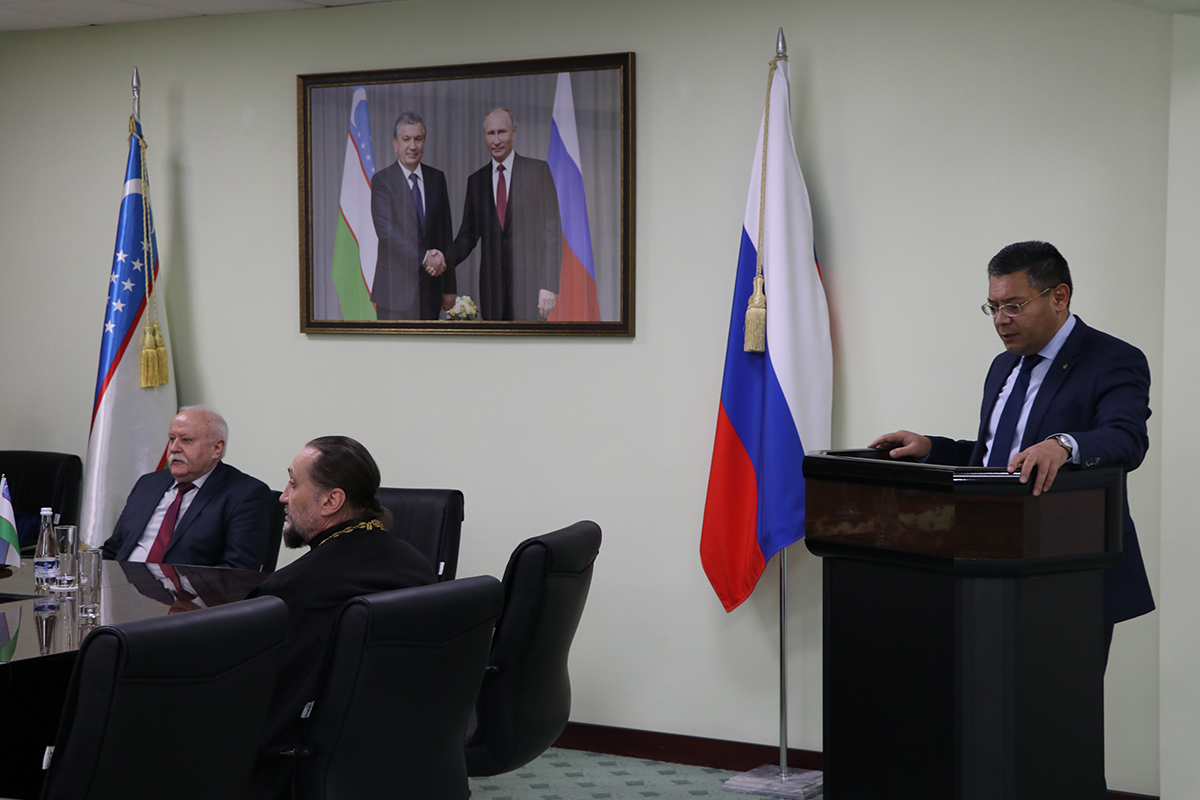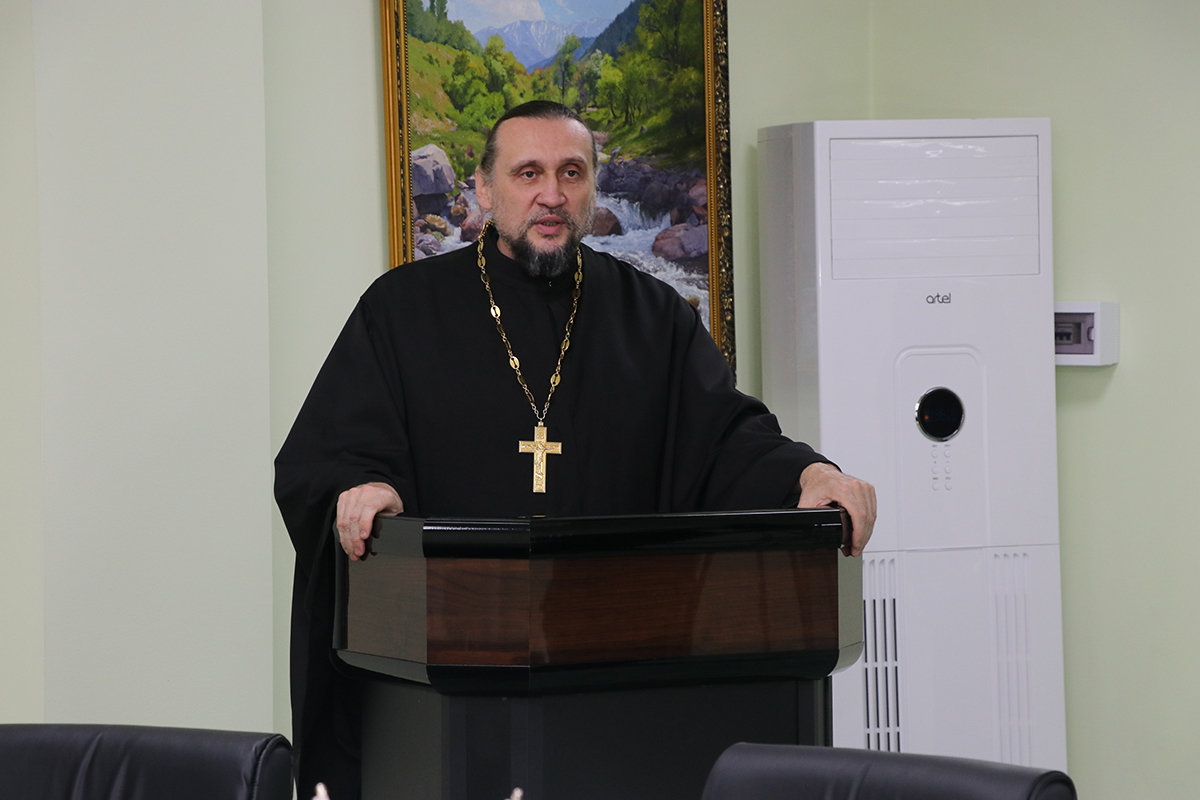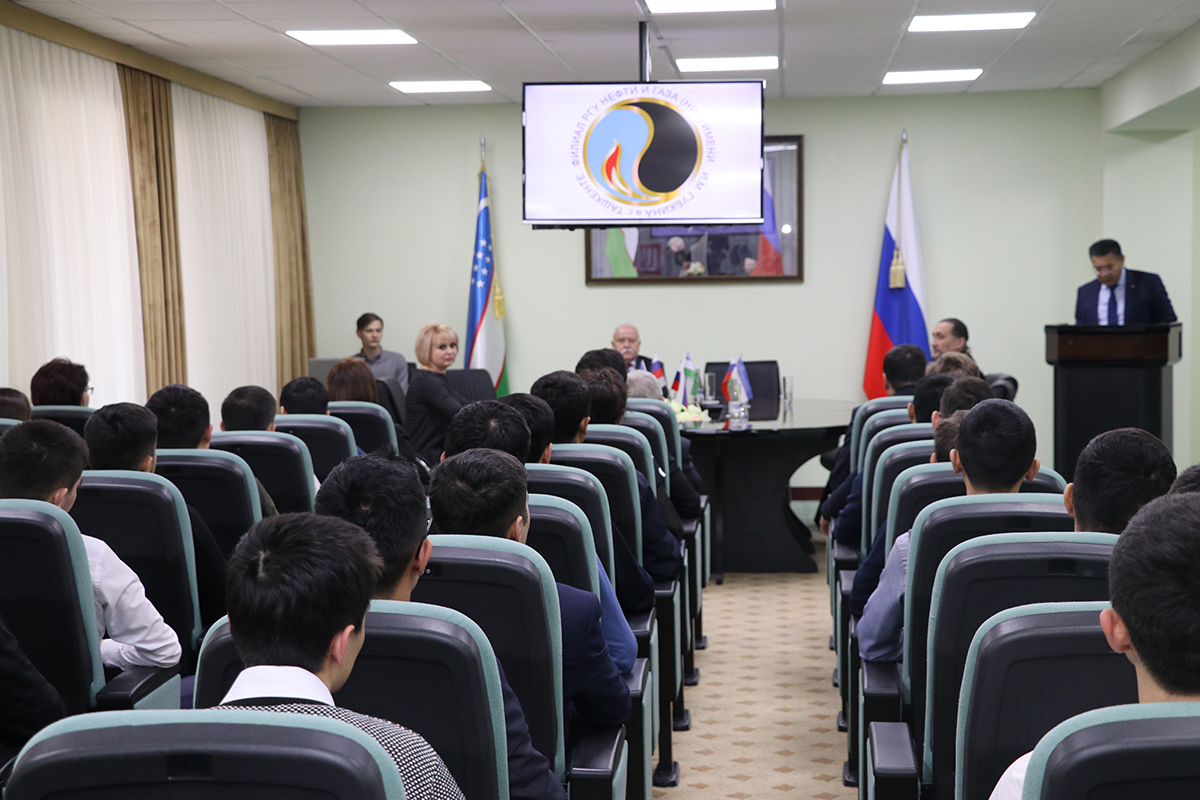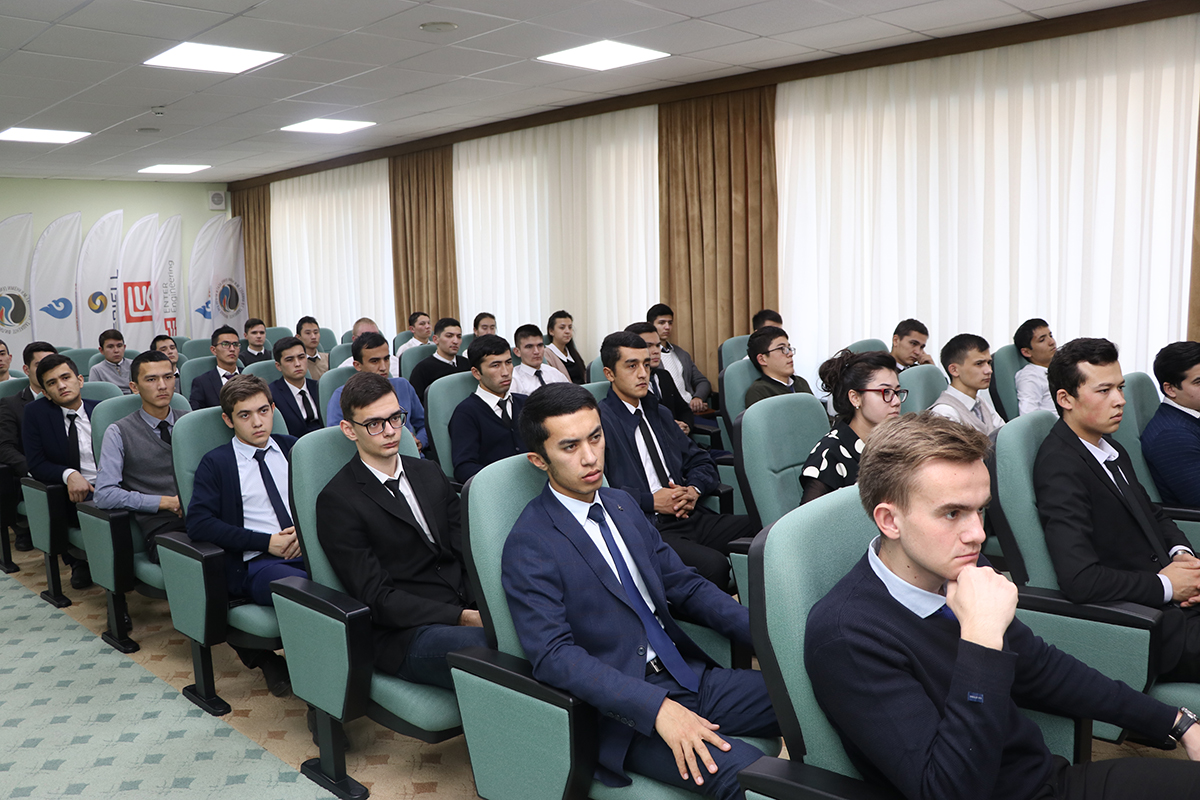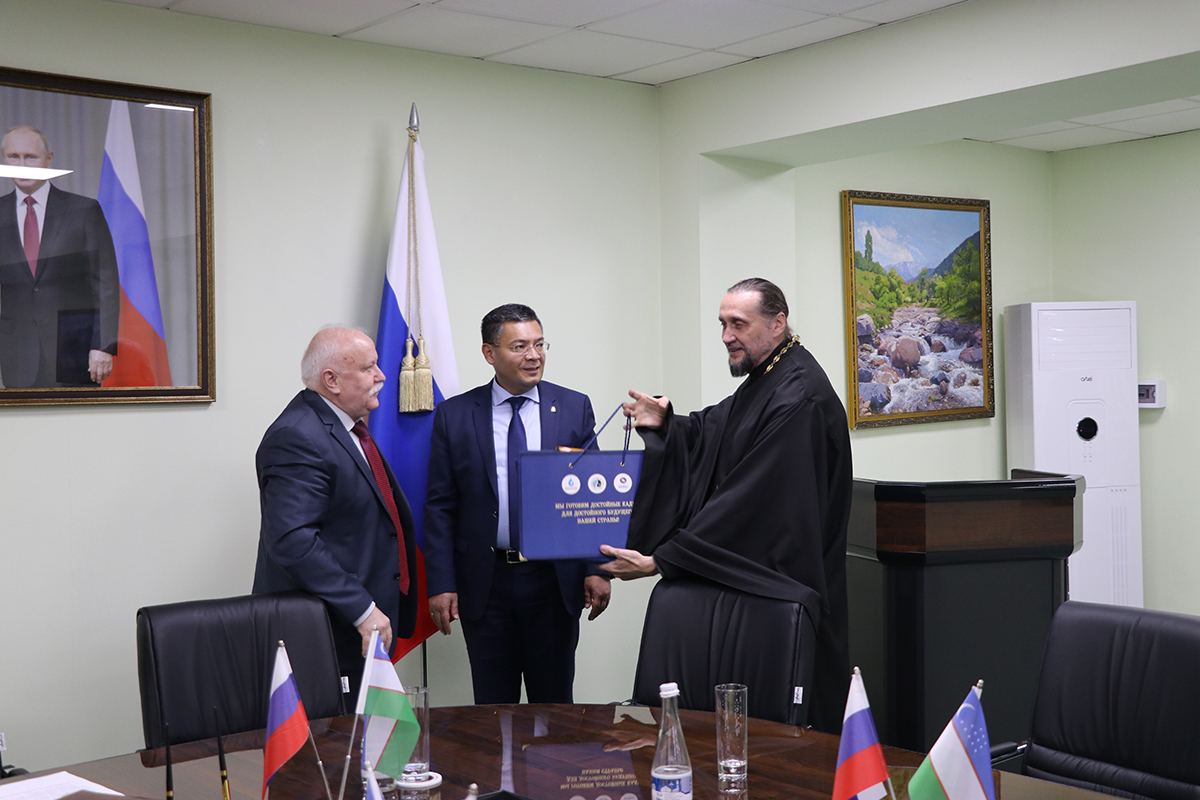Tolerance is the basis of peace and stability
In order to implement measures to promote the ideas of interreligious tolerance and interethnic harmony, the role of interfaith dialogue in the development of society, raise religious literacy of the youth, on November 29, 2018, the Branch of Russian State University of Oil and Gas (NRU) named after I.M. Gubkin in Tashkent city held a meeting with religious leaders on the topic “Tolerance is the basis of peace and stability”.
The event was attended by the Director of the Branch Maksimenko Alexandr Fyodorovich, the Deputy Director - Executive Director Magrupov Abdulla Mahmudovich, the Vice-Rector for the Tashkent Theological Seminary, Archpriest Sergiy Statsenko, the staff and students of the Branch.
“It is a well-known fact that representatives of various nations live in peace and harmony in the spirit of principles of generosity and brotherhood in Uzbekistan, and nowadays in consonance to the great historical traditions of tolerance representatives of more than 130 nations and nationalities are guaranteed freedom of conscience and religion. The head of our state pays a particular attention to strengthening harmony, interreligious tolerance, peace and tranquility not only in our country, but also in Central Asia, in the world at large, educating young people in a spirit of respect for national and universal human values ” – said the Deputy Director - Executive Director of the Branch Professor Abdulla Makhmudovich.
In his speech, Archpriest Sergiy Statsenko emphasized: “The model of building a tolerant society developed by Uzbekistan, is very different from the typical ones, starting with the national term for this concept. The word “bag’ri kenglik” (generosity, goodness) does not rely on the origin of the term “tolerance”. In the common perception, tolerance is understood as the ability to tolerate the presence of people with alien views without aggression. In the Uzbek interpretation, tolerance is designated as the breadth of the soul, which already speaks of the essence of our traditions of living together peoples with many national cultures and religions”. It is known from elementary psychology that any problems in the family can be solved by speaking and discussing these problems together. In addition, in the conditions of multi-confessional, when there is a difference in the doctrines of different religions, dialogue is also a means to achieve mutual understanding.
We can differ in dogmatic views. However, there are areas that unite us and can unite in the future. It is about preserving the traditions of morality, about building a peaceful society, about the principles of mutual respect, about social work among people. Meanwhile, we fully reached an understanding through dialogue. Again, referring to examples of modernity, we can testify that Muslims in the makhallas (local authorities) do not abandon the sick and lonely Christians to their fate. In turn, the Church has recently become more active in social work rendering assistance to people regardless of their religion or nationality. For these and many other reasons, we can argue that the dialogue of tolerance in Uzbekistan has been successful. Moreover, there are all the prerequisites to say that this will continue in the future”.
At the end of the event, the Branch Director Maksimenko Alexandr Fedorovich expressed his gratitude to the audience and noticed once again that “tolerance is a value and norm of any civil society, in this capacity it manifests itself as ensuring harmony between faiths, political and other social groups, in respect of world cultures, civilizations and the willingness of peoples to understand and cooperate among themselves”.


